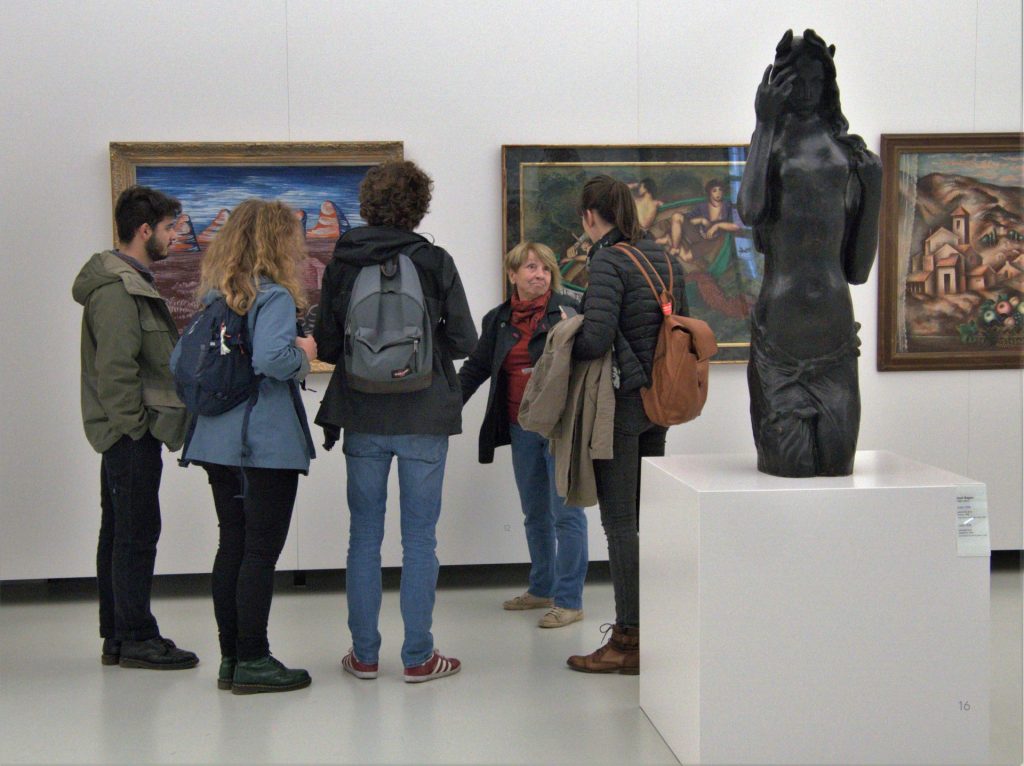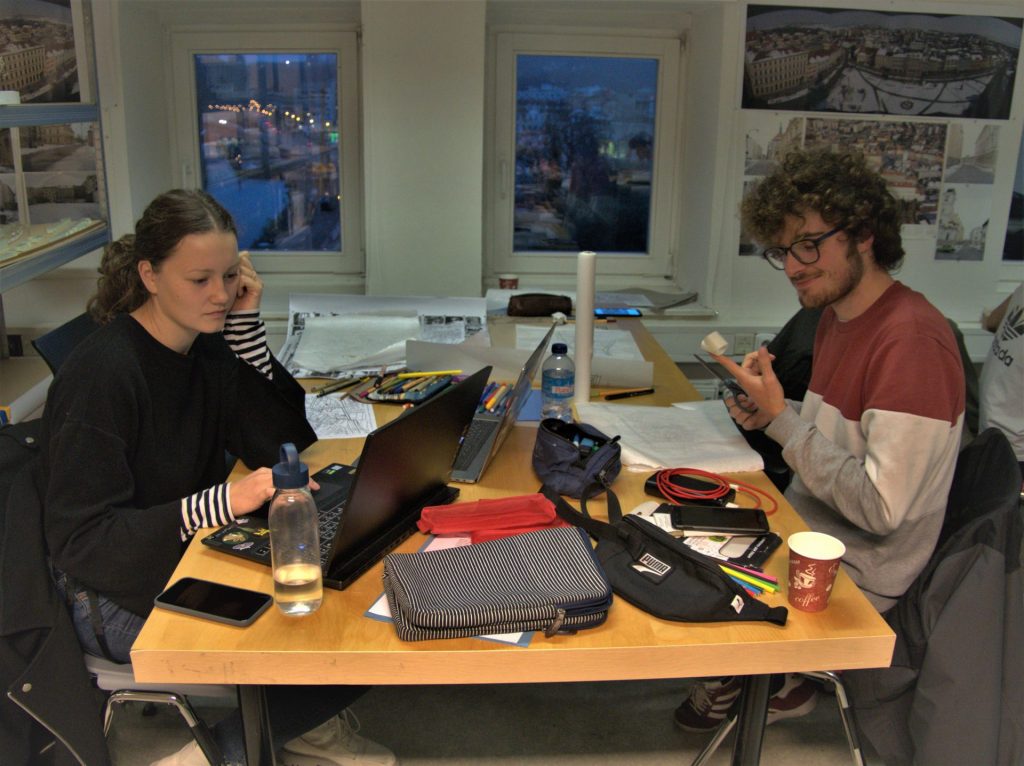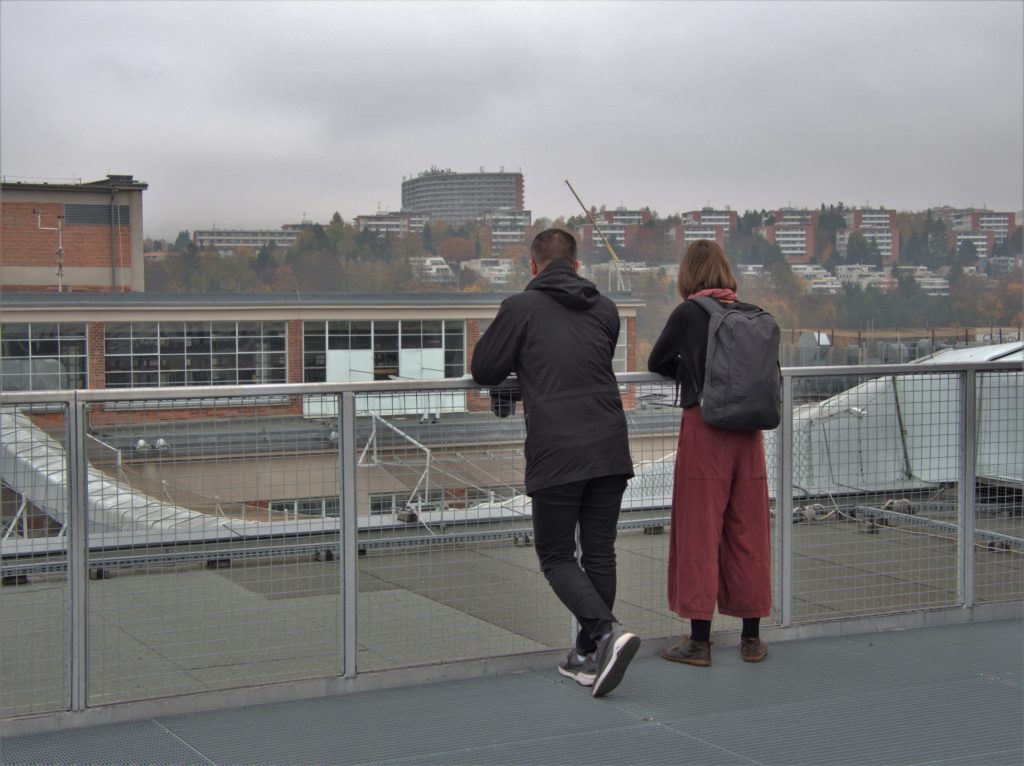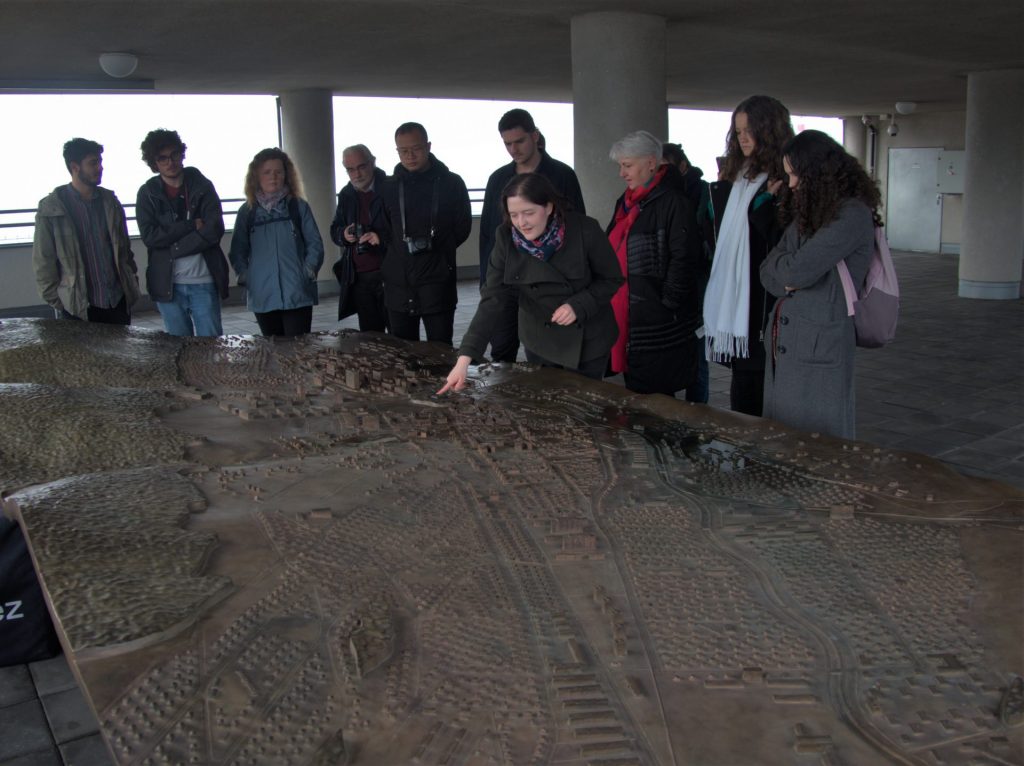The workshop for students of architecture, urban planning and urban design took place in November 2022. Co-organised by VUT, UBO and TUD, the workshop focused on the preservation and new functional use of Brno’s industrial heritage.
Brno experienced rapid economic and urban development during its period of industrialisation in the 19th century. The numerous textile factories, which were embedded in the urban fabric of the city and which required the creation and development of the engineering industry, earned Brno the title of “Moravian Manchester”. In order to control industrial production, the founders of the factories built large modern villas on the fringes of the industrial production sites, such as Villa Löw Beer (arch. Alexander Neumann, 1903- 1904), Villa Stiassni (arch. Ernst Wiesner, 1927-1930) or the famous Villa Tugendhat (arch. Ludwig Mies van der Rohe, 1928-1930). During the Second World War, they were abandoned by their owners who fled the country or were deported to concentration camps. They were then looted and damaged or even partially destroyed. Today, these sites benefit from protection measures that go as far as their inclusion on the Unesco World Heritage List. As for the factories, they remained in operation for a long time under the socialist regime. The economic crisis of the mid-1990s led to major industrial restructuring and the closure of factories. This process of decline raised many debates about their re-use. Since the factory conversion projects, such as the Dolni Vitkovice industrial park in Ostrava, which was awarded the first European heritage label in 2005, examples have multiplied. In addition to awakening recognition of this typology as heritage and as an object of research, they have affirmed an approach that is part of the sustainable logic of cities.
The site proposed for study is the Mosilana textile factory, located in the heart of the city of Brno, which ceased production some twenty years ago. The aim was to imagine a revitalisation project for these buildings, which are currently being considered by the city.
To begin the work, a guided tour of the site was organised to discover its urban context and the potential of the factory and its buildings. More broadly, in order to provide a cultural background and understand the long industrial tradition of the city of Brno and the consideration given to its heritage, several meetings and exchanges have been organised:
- Visits: to the Technical Museum and the Brno City Museum, to Špilberk Castle, and to one of the above-mentioned villas
- A tour of the “model industrial town of Zlín”, founded by the prominent entrepreneur Tomáš Baťa, where several examples of transformations of old buildings of the original factory town will be observed
- A lecture by Michaela Ryšková from the Methodological Centre for Industrial Heritage of the National Heritage Institute




The projects developed by the students were the subject of an exhibition presented at the international colloquium in Brest in January 2023.
